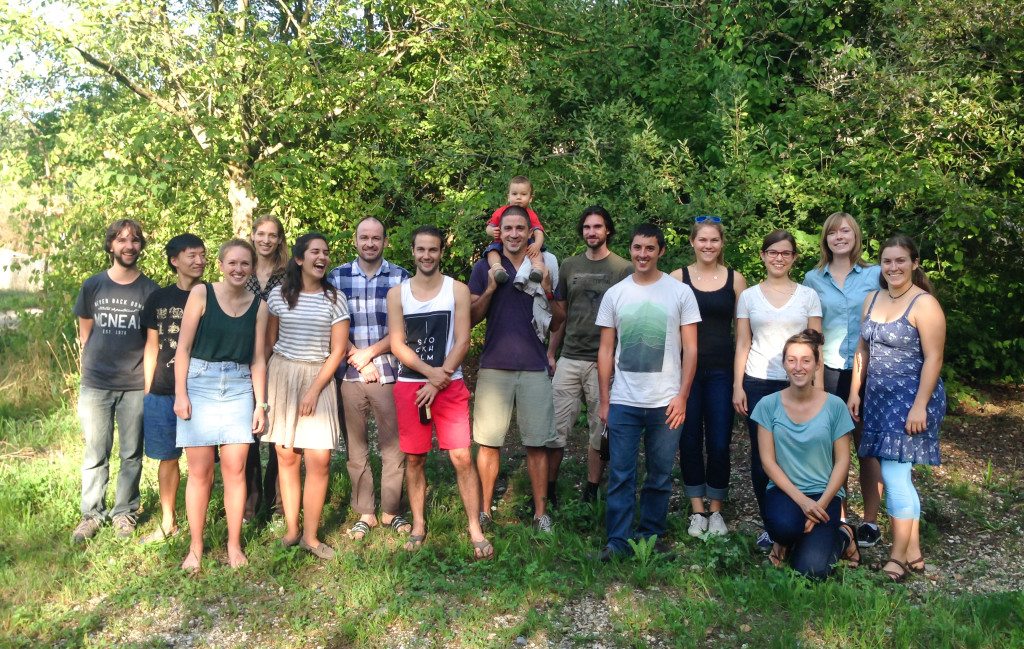Written by Billur Bektaş

As an undergraduate student at the Istanbul Technical University from the molecular biology and genetics department, my journey in the field of ecology started with voluntary based projects in the TEMA* foundation in Turkey. In this foundation, I had several opportunities to attend ecological literacy instructions, meet people involved in ecology and even share my experience as well as learn with peers. However, guided by my dearest friend Burcu Arık Akyüz in the foundation and inspired by ecologists that I’ve met in my country, a will for deepening the knowledge and understanding for ecology started to grow inside. Since the education I take at my university is focused on molecular biology concentrating mostly on micro level studies, I was unsatisfied and lost. Sure, I was interested in genetics and other molecular based courses but I was deeply curious about several other questions. Namely: “What is the relationship between the environment and populations?” “How are populations and individuals affected by environmental changes?” “Is there a way to formulate and show these relationships and even predict the consequences of environmental changes?” and many more. I was looking for a way to link my education with this new ambition. Thus, thankfully I found out about Arpat. First by name, then in an interview online, then in his publications and at last I had the courage to email him to ask for an internship in his working group. Thankfully again, he accepted! So, I lived the most inspiring month of my life – academically and emotionally. Mainly I worked on rotifers in the laboratory, resurrected the resting eggs from 50 years ago coming from Lake Orta (Italy), a lake that was once contaminated with copper but then recovered. I conducted experiments to collect life table data (survival, and reproduction) and measure body sizes of individuals. During my first week in Zurich, I read different articles mostly about my experiment. I had the chance to take an introductory lecture to matrix modeling and LTREs (Life-Table Response Experiments) analysis from Arpat and we designed the experiment together with the group. In the second and third week, I conducted the experiment and hence encountered different problems in lab. The real experience was not the experiment itself, rather finding solutions to different problems with the group. Finally I learned how to do matrix population modeling and during the last week I analysed the data and sometimes really felt all neurons in my brain… Recalling all those math lectures I once took, trying to learn R-programming and learning something totally new for me… However, at the end I was fascinated by the intelligence behind connecting mathematics with ecology and creating the possibility to use this outcome for conservation biology and for deepening our understanding of ecology and evolution. From the first day to the last, all days passed with learning and curiosity to learn more. And finally my mind was totally clear! This was what I want! Finally I had found my curiosity, my inspiration and my topic for my future study. This feeling was really precious, giving an aim in life and willing to wake up as early as I can in the morning to go to work immediately, discovering more and more, always with a smile on my face and the ambition to carry on.
And now? Now I have many plans and goals for my upcoming years in my undergraduate studies. I have many projects in mind, many articles and books to read, many scientists to meet, many workshops to take… I want to improve my skills in this field on my own due to limited scientific opportunities in my country. However, I am also excited to study ecology in my home country because of its rich biodiversity and different ecosystems.
With this occasion, I want to thank all PopEcol group members to welcome me so friendly, helping me with my other projects and help me to survive socially in Zurich. I want to thank especially Naomi and Stefan for teaching me all these lab skills with discipline and guiding me through the experiment. And for sure I want to thank Arpat to give me the opportunity to be the part of this inspiring group, their scientific work and helping me to find my way in this marvelous journey of ecology.
*TEMA: The Turkish Foundation for Combating Soil Erosion for Reforestation and the Protection of Natural Habitats
